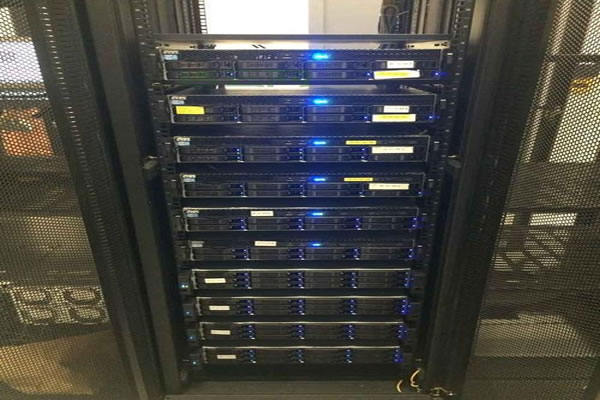
the root server is the cornerstone of the internet, responsible for parsing domain names and guiding users to visit the website. although there are multiple root servers around the world, they are mainly concentrated in the united states. behind this phenomenon is complex historical, technological and economic reasons. this article will explore in-depth why root servers dominate the united states and the impact of this phenomenon on the global internet.
definition and functions of root server
the root server is a core component of the internet domain name system (dns). they store top-level information on the entire network domain name and provide basic support for domain name resolution. when a user enters a url, the root server directs the request to the appropriate top-level domain server, ensuring that the user can access the required website smoothly. the stability and security of the root server are directly related to the overall operating efficiency of the internet.
historical factors: the first-mover advantage of the united states
the internet originated in the united states and was originally developed by the us department of defense's arpanet. with the rapid expansion of the internet, the united states has gained a first-mover advantage in the construction of global network infrastructure. in this context, the setup and management of root servers are mainly concentrated in the united states. early technological developments and policy measures made the united states a "natural home" for internet root servers.
technical factors: us network infrastructure
the united states has the world's most advanced network infrastructure, including high-speed fiber optic networks and data centers. these facilities provide ideal conditions for the operation and maintenance of root servers. strong bandwidth and low latency enable the us-based root server to efficiently handle dns query requests worldwide. in addition, american technology companies and research institutions are in the leading position in the innovation and development of network technology, which indirectly promotes the centralization of root servers.
economic factors: investment and resource allocation
the construction and maintenance of root servers require a lot of financial and technical support. the united states' economic strength allows it to invest more resources in network infrastructure construction. many international internet organizations and companies choose to set up headquarters in the united states to facilitate technical support and financial investment, thus promoting the centralized development of root servers. this economic advantage further consolidates the united states' dominance in the global internet.
policy factors: government support and regulation
the us government's emphasis on internet infrastructure, especially in terms of security and stability guarantees, has prompted the construction of root servers to be supported by policy. the laws and regulations of the united states are relatively complete and can effectively protect the openness and security of the internet. this good policy environment has attracted more technology companies and research institutions to invest and innovate in the united states, further promoting the centralization of root servers.
the impact of international cooperation and globalization
although root servers are concentrated in the united states, the trend of international cooperation and globalization is gradually changing this pattern. with the popularity of the internet, countries have realized the importance of network security and stability and have begun to actively participate in the construction and maintenance of root servers. in recent years, international internet governance agencies have also promoted the decentralization of root servers to improve the resilience and security of global networks. despite this, the root servers in the united states still dominate.
future outlook: distribution and evolution of root servers
in the future, with the changes in the global network environment and the development of technology, the distribution of root servers may change. governments and international organizations may further promote the global distribution of root servers to improve network security and stability. at the same time, the development of cloud computing and edge computing may also change the traditional root server architecture, making the management and maintenance of root servers more flexible and efficient.
summary and suggestions
the phenomenon that root servers are mainly concentrated in the united states reflects many factors such as history, technology, economy and policy. with the continuous development of the global internet, the distribution and management of root servers may change. in order to meet future challenges, countries need to strengthen cooperation and promote the construction and security of network infrastructure. at the same time, internet users should also pay attention to network security and improve their security awareness of network use. through joint efforts, a more stable and secure global internet environment can be built.
- Latest articles
- U.s. High Defense Server Xiaoai Function Analysis And Usage Guide
- Advantages And Practical Applications Of Hong Kong Positioning Server
- Practical Tips On How To Buy Thai Cloud Servers At Low Prices
- The Best Way To Get A Free Ip Address For A Taiwanese Server
- Explore The Best Usage Scenarios Of Thailand Dynamic Dial-up Vps
- Learn The Truth About Whether Server Rent In Thailand Is Expensive
- Analysis Of Diverse Application Scenarios Of Hong Kong Vps
- Comparison And Recommendation Of The Cheapest Cloud Servers In Vietnam
- Best Options And Suggestions For Renting A Server Outside Malaysia
- Stability Evaluation And User Feedback Of Shatin Computer Room In Hong Kong
- Popular tags
-
How Many IPs Are Generally Needed For An Effective Operation Of A US Server Cluster?
This article explores the number of IP addresses required for the effective operation of a US-based website cluster and provides professional advice to help understand the construction and optimization of a website cluster. -
Advantages And Price Analysis Of Server Rental And Hosting In The United States
this article discusses the advantages and price analysis of server rental and hosting in the united states to help users choose a suitable server plan. -
How To Increase Website Traffic Through The US CERA Site Group Server
Learn how to improve website traffic through the US CERA site group server, optimize your SEO strategy, and enhance the online visibility and competitiveness of your website.


